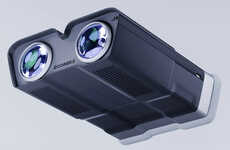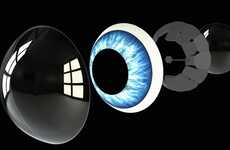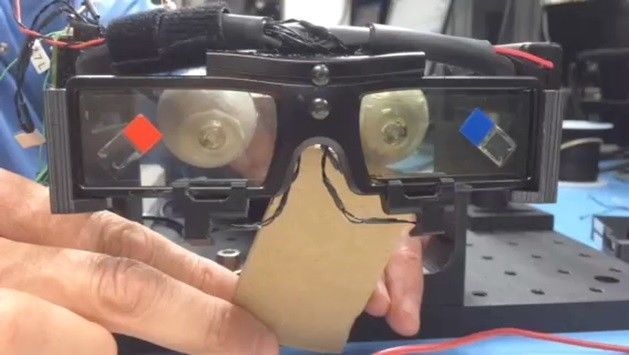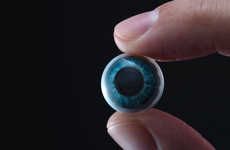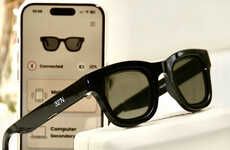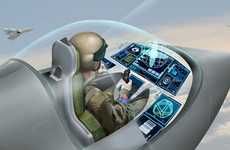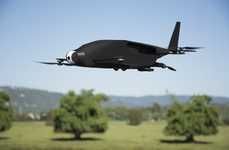
These Telescopic Contact Lenses Can Be Zoomed At the Blink of an Eye
Rahul Kalvapalle — February 17, 2015 — Tech
References: aaas.epfl.ch & gizmag
Researchers from EPFL in Switzerland have developed contact lenses embedded with tiny telescopic lenses for improved vision. These lenses allow the wearer to zoom in on objects thanks to a magnification mechanism that is up to 2.8 times that of unaided human sight.
The lenses were originally created by DARPA as military tools capable of enhancing soldiers' vision capabilities in the field. However, they are now being promoted for a more noble application, that of acting as visual aids for people suffering from Age-related Macular Degeneration, a condition that results in a loss of sight in the center of the eye.
The telescopic lenses require users to wear a set of smart glasses that allow them to control the zoom function, a small price to pay for enhanced eyesight.
The lenses were originally created by DARPA as military tools capable of enhancing soldiers' vision capabilities in the field. However, they are now being promoted for a more noble application, that of acting as visual aids for people suffering from Age-related Macular Degeneration, a condition that results in a loss of sight in the center of the eye.
The telescopic lenses require users to wear a set of smart glasses that allow them to control the zoom function, a small price to pay for enhanced eyesight.
Trend Themes
1. Telescopic Contact Lenses - Telescopic contact lenses embedded with magnification mechanism up to 2.8 times opens the market towards new accessibility in visual aid.
2. Smart Glasses - Smart glasses enable control of the magnification in contact lenses which creates opportunities in smart eyewear industry for visual aids.
3. Personalized Visual Aids - Innovations in optometry can create opportunities to personalize and improve visual aid products for patients with eye-related conditions like Age-related Macular Degeneration.
Industry Implications
1. Optometry - Contact lenses with built-in magnification can disrupt the optical industry providing new accessibility options.
2. Military and Defense - Telescopic technology designed for military and defense can be repurposed and further developed for civilian use specifically to aid in ophthalmology.
3. Smart Eyewear - Smart glasses opens the door for new advancements in accessibility technology, specifically eyewear and internal magnification mechanisms.
4.7
Score
Popularity
Activity
Freshness



